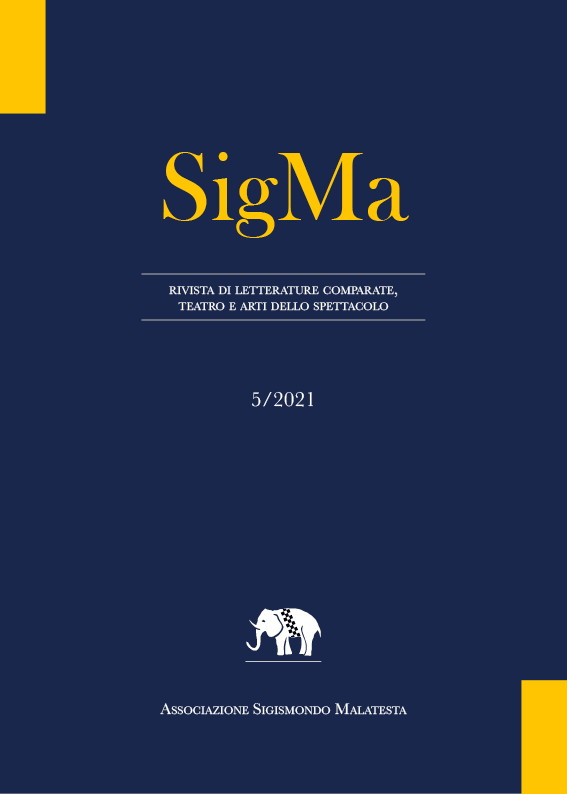This should be the place. Ri-disegnare il ‘traumascape’ nel cinema documentario post-traumatico
Abstract
Il concetto di trauma, nella sua declinazione storica o personale, ha assunto ormai un ruolo centrale nel cinema documentario contemporaneo, che non si presenta semplicemente come parte di un processo volto alla mera rappresentazione dell’evento ma diventa in sé uno strumento epistemologico, capace di orientare lo studio delle modalità attraverso le quali memoria e rielaborazione vengono costruite nell’atto stesso di filmare. Il cinema documentario post-traumatico si interroga sulla relazione che intercorre tra trauma storico e le modalità, così come le forme, per rappresentarlo. Il seguente contributo si pone l’obiettivo di esplorare un aspetto chiave per riflettere sulla ri-messa in scena del trauma nel cinema documentario contemporaneo ovvero il rapporto che si instaura tra spazio, evento e memoria. Nello specifico prenderò in esame Nostalgia de la luz (Nostalgia della luce, Guzmán 2010), Dubina dva (Depth Two, Glavonic 2016) e Le dernier des injustes (L’ultimo degli ingiusti, Lanzmann 2013), film che ri-disegnano e riconfigurano il paesaggio, riscoprendo le tracce traumatiche, seppur ad una prima vista invisibili, in spazi ancora infestati dai fantasmi del passato.
Downloads
SigMa pubblica in internet, ad accesso aperto, con licenza:
|
|
CCPL Creative Commons Attribuzione |
L'autore conserva il copyright sul suo contributo, consentendo tuttavia a chiunque "di riprodurre, distribuire, comunicare al pubblico, esporre in pubblico, rappresentare, eseguire e recitare l'opera", purché siano correttamente citati l'autore e il titolo della rivista. L’autore, al momento della proposta di pubblicazione, è inoltre tenuto a dichiarare che il contenuto e l’organizzazione dell’opera è originale e non compromette in alcun modo i diritti di terzi, né gli obblighi connessi alla salvaguardia di diritti morali ed economici di altri autori o di altri aventi diritto, sia per testi, immagini, foto, tabelle, sia per altre parti di cui il contributo può essere composto. L’autore dichiara altresì di essere a conoscenza delle sanzioni previste dal codice penale e dalle leggi speciali per l’ipotesi di falsità in atti ed uso di atti falsi, e che pertanto Reti Medievali è esente da qualsiasi responsabilità di qualsivoglia natura, civile, amministrativa o penale, e sarà dall'autore tenuta indenne da qualsiasi richiesta o rivendicazione da parte di terzi.

